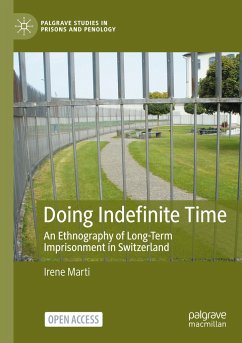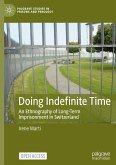This open access book provides insights into the everyday lives of long-term prisoners in Switzerland who are labelled as 'dangerous' and are preventatively held in indefinite, probably lifelong, incarceration. It explores prisoners' manifold ways of inhabiting the prison which can be used to challenge well established notions about the experience of imprisonment, such as 'adaptation', 'coping', and 'resistance'. Drawing on ethnographic data generated in two high-security prisons housing male offenders, this book explores how the various spaces of the prison affect prisoners' sense of self and experience of time, and how, in particular, the indeterminate nature of their imprisonment affects their perceptions of place and space.
It sheds light on prisoners' subjective, emplaced and embodied perceptions of the prisons' various everyday time-spaces in the cell, at work, and during leisure time, and the forms of agency they express. It provides insight into prisoners' everyday habits, practices, routines, and rhythms as well as the profoundly existential issues that are engendered, (re)arranged, and anchored in these everyday contexts. It also offers insights into the penal policies, norms, and practices developed and followed by prison authorities and staff.
It sheds light on prisoners' subjective, emplaced and embodied perceptions of the prisons' various everyday time-spaces in the cell, at work, and during leisure time, and the forms of agency they express. It provides insight into prisoners' everyday habits, practices, routines, and rhythms as well as the profoundly existential issues that are engendered, (re)arranged, and anchored in these everyday contexts. It also offers insights into the penal policies, norms, and practices developed and followed by prison authorities and staff.








